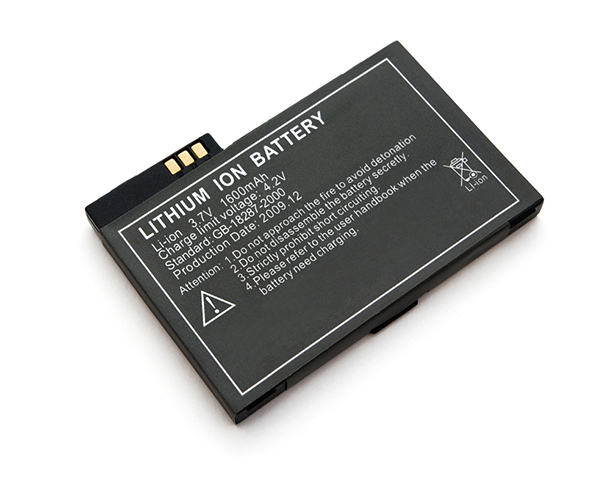Lithium batteries, especially lithium-ion batteries, have become the energy source of choice for many items due to their high power density, lightweight, and rechargeability. As the demand for electronic equipment increases, so does the shipment of lithium batteries. However, many people are unaware that lithium batteries are classified as dangerous goods. Wondering if you can ship lithium batteries? The answer is yes! When transporting lithium batteries, some safety-related measures and guidelines must be followed.
What are Lithium Batteries?

By far the most important energy storage systems on the market today, lithium batteries and batteries power billions of rechargeable and non-rechargeable industrial, commercial, defense, and consumer devices worldwide. This is because lithium has unique properties that make it ideal as an energy storage material. In fact, “battery” is actually an umbrella term for a series of lithium-based energy storage battery technologies derived from the alkali metal lithium. Industries, organizations, and consumers typically use two types of batteries—disposable non-rechargeable lithium metal or primary batteries and rechargeable lithium-ion batteries. The former consists of metallic lithium, while the latter consists of intercalated lithium compounds. Therefore, each battery varies in performance, characteristics, chemistry, and safety.
What Are Lithium Batteries Used For?
Since lithium batteries are the power source of choice for most consumer and portable electronic devices, lithium batteries can be found everywhere. They’re in projects you probably haven’t even considered. Lithium metal batteries are found in items such as watches, calculators, cameras, car key fobs, and defibrillators. Lithium-ion batteries are commonly found in products such as cell phones, laptops, tablets, power tools, and e-bikes. They are items that airline passengers carry on a daily basis and are transported as cargo on a daily basis.
What Are The Risks Of Lithium Batteries?
In general, lithium batteries are considered safe and unlikely to fail. As a battery, the material offers a lightweight, high-power, energy-dense energy storage solution. However, as an alkali metal, lithium is chemically reactive, highly flammable, and has a low melting point. A risky battery is one that has been damaged or defective. When one lithium battery fails, it damages nearby batteries, which in turn release more heat, leading to a flammable chain reaction called thermal runaway. The high energy density of lithium batteries makes it easier for these reactions to occur. If the battery is defective, a chemical reaction may occur. If the cell walls swell and chemicals leak out, it can also lead to burning. Batteries may fail due to improper use, storage, or charging. Damage can occur over time or immediately due to physical shock, abrasion, improper charging, or even exposure to extreme temperatures (above 130°F or 54°C, below 32°F or 0°C).
Lithium Batteries Shipping Regulations
Lithium batteries are classified as hazardous materials. When transporting lithium batteries, comply with the Department of Transportation’s Hazardous Goods Regulations (HMR; 49 CFR Parts 171–180). All packaging and standard hazmat labeling communication requirements apply. This includes proper marking, proper labeling, shipping documentation, and emergency response information. These packages must meet hazmat staff training requirements. Whether shipping a single lithium battery, a pallet-sized load, or any type of lithium battery-powered equipment, packaging, handling, and shipping must comply with the HMR for lithium batteries.
Shipping Certification For A Lithium Battery
Lithium-ion batteries are generally considered dangerous goods in transport and therefore require multiple transport certifications to reduce the likelihood of accidents. Below are instructions for the certifications that may be required to ship lithium batteries.
- United Nations/DOT
The United Nations Department of Transportation is a cargo transportation standard formulated by the United States Department of Transportation and has clear regulations on the transportation standards for lithium batteries. Among them, UN38.3 is regulation for lithium batteries used in air transportation. This test standard covers eight different tests, all of which focus on the hazards of lithium batteries in transport. In recent years, the United Nations Department of Transport has passed a new law banning the installation of lithium batteries on passenger planes. Therefore, it is expected that air transportation of lithium batteries may be banned in the future.
- IATA (International Air Transport Association)
Unlike other laws and regulations, IATA does not conduct certification tests for the specific cargo being transported. IATA certifies cargo shippers only to ensure that shippers understand the requirements for shipping lithium batteries. Meanwhile, certified shippers still need to recertify annually.
- IEC (International Electrotechnical Commission)
As a not-for-profit standards-setting organization, the IEC produces international standards for electrical, electronic, and other related technologies. Its standards include general, safety and transport specifications. In the IEC standard, IEC 62281 is dedicated to the transportation of primary or secondary lithium batteries, which aims to ensure the safety of lithium batteries during transportation.
- CE marking
CE marking is a self-declaration made by a manufacturer to confirm that a product complies with EU product safety requirements. The EU’s CE safety certification is more comprehensive and can ensure that products are certified for safety almost on a global scale. However, CE marking does not apply to products sold in the United States.
- ANSI (American National Standards Institute)
Like IEC, ANSI is a non-profit standards development organization that develops consensus-based standards. ANSI C18.2M and ANSI C18.3M provide safety standards for portable rechargeable batteries.
In addition to some of the above certifications, there are many professional or non-professional certifications for lithium battery transportation in the world, which are suitable for different transportation situations.
Shipping Lithium Batteries Properly?

First, before shipping lithium batteries, it must be confirmed whether the battery or the shipper has safety certification. According to the requirements of the transportation company, test and register the corresponding safety certification, which is the most effective way to transport lithium battery certification. For certain specifications of lithium batteries, shipping companies will also require shippers to sign a dangerous goods contract.
It is also necessary to choose a good shipping company. Since the transportation of lithium batteries is a complex issue, and the batteries cannot be packaged and mailed directly, the safety issues in the transportation of lithium batteries must also be considered. Therefore, it is very wise to choose well-known courier companies such as USPS and UPS to ship lithium batteries. They have comprehensive guidelines for shipping dangerous goods, as well as a large number of trained personnel who understand how lithium batteries work and how to handle them safely.
In addition to registering and selecting a shipping company, there are many details to be done in the transportation of lithium batteries. First, lithium batteries weighing more than 35kg must be approved by national authorities before shipment. The higher the net weight of the lithium battery, the higher the risk level and the need for stricter controls. Second, damaged or defective batteries should not be shipped, the batteries should be strictly packed and labeled as lithium battery shipping products. Finally, used lithium batteries for recycling should not be shipped by air unless approved by national authorities and airlines. All these measures are related to the safety of the goods and the life of the transporter, so there can be no negligence.
Conclusion
Even with the widespread availability of lithium-ion battery-powered applications, there are still problems with battery transportation and storage. Because lithium batteries are extremely heat-sensitive and inherently flammable, they are regulated as dangerous goods. Shippers play a vital role in reducing any risk and preventing any incidents to ensure compliance and safe delivery.

